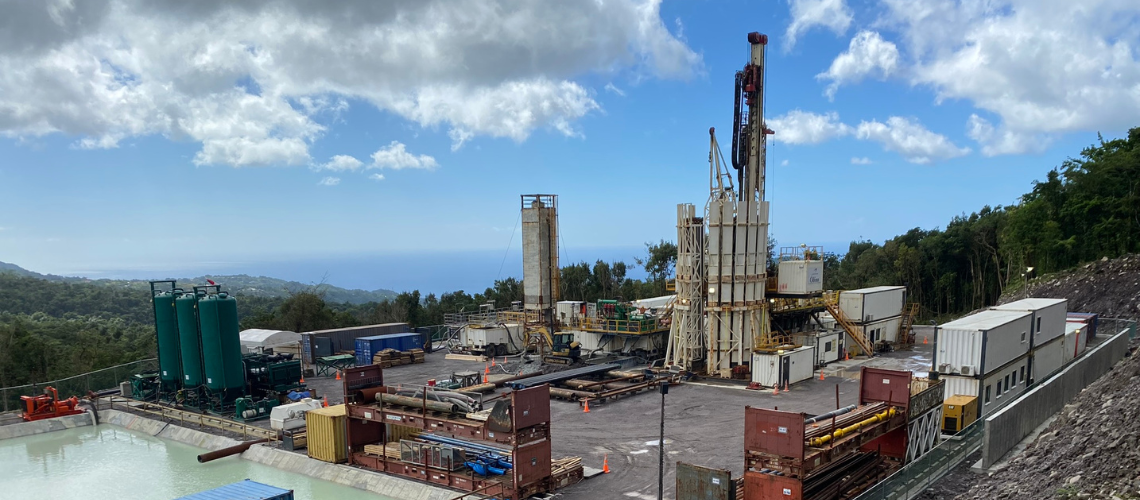 Renewable energy plant in the Caribbean
Renewable energy plant in the Caribbean
Despite having abundant renewable energy resources that can offset some of the longstanding challenges in the region, the Caribbean remains trapped in a cycle of economic fragility that is hindering progress and exacerbating inequalities. Harnessing these resources can accelerate the clean energy transition, improve socio-economic outcomes, and electrify regional economies. Recognizing this duality, the World Bank is partnering with Caribbean governments to invest nearly USD 500 million in renewable energy projects to catalyze the clean energy transition by 2025 .
But money alone is not enough since, in this region, size matters; so too does scalability, improved implementation capacity, and regionally compatible legislations — the reverse of which sustains a fuel trap. This phenomenon, characterized by high and fluctuating energy costs, hampers competitiveness and productivity and perpetuates poverty. This stems from the region’s limited fiscal space and capacity to transition from fossil fuel-based power generation, which dominates over 90 percent of its electricity supply.
Due to this fuel trap, electricity prices in the Caribbean average around USD 0.25 per kWh, more than double the average price in the United States, and in some countries, reach over USD 0.40 per kWh. That is why the World Bank is helping to foster cooperation between countries and crowds in the private sector to break this cycle and unlock the full potential of the energy sector. The vulnerability of the Caribbean to extreme weather events also underscores the pressing need for increased investments in resilience and renewable energy is a part of the solution.
Advancing sustainable energy solutions at the country level in the Caribbean
At the country level, World Bank-led interventions are producing tangible outcomes:
- In Haiti, we helped the government create the Off-Grid Electrification Fund in 2016 to provide grants and equity to private mini-grid developers. Since then, other development banks have joined efforts to scale up the operation.
- In Belize, we support investments in Battery Energy Storage to integrate solar energy into the grid.
- In geothermal energy, since 2019, we have been supporting exploration in Dominica and Saint Lucia with a USD 35 million operation to help these countries reach self-sufficiency in power generation.
Our insurance and private sector arms, the Multilateral Investment Guarantee Agency (MIGA) and the International Finance Corporation (IFC), are also fueling the transition in the region:
- In April 2023, MIGA issued loan guarantees totaling USD 11.7 million to St. Lucia to cover a 15-year equity investment. As a result, the country will be able to slash streetlight electricity consumption by nearly 70 percent and will replace all 22 000 streetlights with energy-efficient LEDs, avoiding 5 000 tons of CO2e emissions annually.
- In Barbados, IFC is pioneering the region’s first green hydrogen power plant with IDB Invest, HDF Energy, and Rubis. The RenewStable Barbados project is designed to supply electricity to 16 000 homes in Barbados at a competitive tariff.
Regional collaboration: A catalyst for progress
Fostering regional cooperation to drive the transition is at the cornerstone of our engagement. Globally, we have demonstrated our commitment by delivering a record USD 31.7 billion in climate finance in 2022 to developing countries. In this pursuit, collaboration remains pivotal. Engaging with regional institutions like the Caribbean Development Bank, the Organization of Eastern Caribbean States (OECS) and the Eastern Caribbean Central Bank (ECCB) underscores our shared determination.
Under ECCB leadership, the World Bank is designing the Caribbean Renewable Energy Infrastructure Investment Facility, to coordinate and accelerate renewable energy investment in selected countries. This initiative aims to eliminate challenges arising from the scale of tenders, which hinder the competitiveness of renewable energy projects. The facility will streamline the procurement process and foster a more competitive environment along with mitigating risks to develop renewables.
This engagement has been powered by partnerships across development partners organizations, with project design and preparation being supported by such as the Clean Technology Fund (CTF), Climate Support Facility (CSF), Energy Sector Management Assistance Program (ESMAP), Global Energy Alliance for the People and Planet (GEAPP), and Public-Private Infrastructure Advisory Facility (PPIAF).
Initiatives such as the regional Caribbean Efficient and Green-Energy Buildings project exemplify the impact of coordinated efforts, aiming to reduce energy consumption and dependence on fuel-generated electricity by implementing energy efficiency measures and rooftop solar PV systems in public buildings and thus reducing costs for public administrations.
The project is also expected to expand the pool procurement model to the energy efficiency and renewable energy investments, building on the achievements and lessons learned from the 35 years of using the approach for the pharmaceutical products championed by the OECS Commission.
Countries in the Caribbean region face one of the greatest challenges in overcoming the threat to energy security. Governments recognize this issue and strive to attract private investment but face policy, institutional, and technical obstacles . A recent market diagnostics study by the World Bank and the ECCB found that despite strong interest from well-funded private-sector stakeholders, such as regional banks and international financial institutions, there have been few investments since developers have struggled to advance projects to the bankability stage.
The World Bank's active involvement serves to mitigate the perceived risks linked to such initiatives, paving the way for sustainable progress for the 18 million people across 19 countries we serve in the region. It’s time for the Caribbean to become a resiliency hub.
Stay updated with our weekly article
Related articles:



Join the Conversation